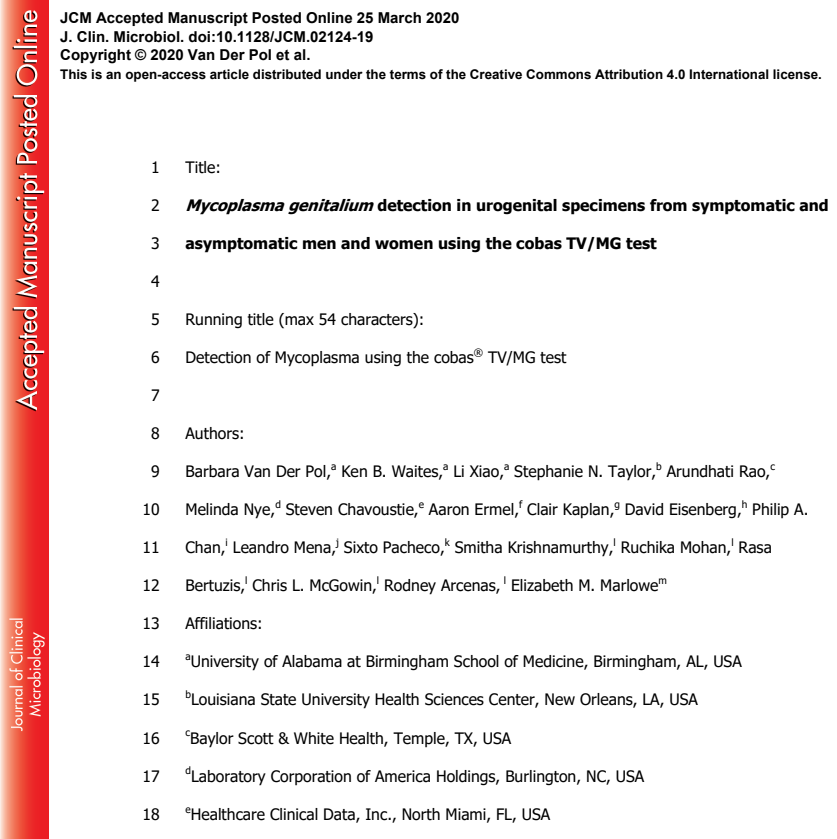
Comparison of the Aptima HBV Quant assay in the automated Panther® System with the Abbott Realtime HBV assay in the quantification of Hepatitis B Virus.
- August 4, 2019
Hepatitis C Virus (HCV) continues to be an important health concern worldwide. Different therapeutic methods are now available for the treatment of HCV infection with good results. Determining the viral load of patients under treatment is now the standard of care for monitoring the response to these treatments. There are different commercially available assays used to detect and quantify HCV RNA in serum and plasma specimens. The objective of this study was to compare the Aptima HCV Quant Dx assay, recently released by Hologic, Inc®, with the Abbott Molecular Realtime HCV assay. The Aptima HCV Quant Dx assay is a real-time transcription-mediated amplification (TMA) test, run in the Panther System (Hologic) used for confirmation of diagnosis and monitoring of HCV RNA. The Abbott Realtime HCV assay is an RT-PCR test run on the automated m2000 system (Abbott Diagnostics).
Sixty plasma specimens, twenty negatives and forty positives for HCV were included in this study. All sixty specimens were used to test the qualitative performance and thirty of them, with known viral loads, were used to test the quantitative performance. All these specimens had been previously tested on the Abbott m2000 platform. The specimens were assayed using the Aptima HCV Quant Dx Assay on the Panther System following the manufacturer instructions. Specificity of the new assay was tested using twenty HCV negative specimens, some of which were positive for Cytomegalovirus (CMV) and Human Immunodeficiency Virus (HIV). Precision was tested using a known HCV positive specimen repeated twelve times in different runs. Results obtained from specimens tested in both instruments were compared using the EP Evaluator program.
The EP Evaluator software was used to determine whether the methods are equivalent within a total allowable error of 1 log 10 IU/mL. Thirty specimens with known HCV genotypes 1a, 1b, 2b, and 3a were compared over a range of 1.11 to 6.98 log 10 IU/mL. The test passed with 98.3 % agreement. One specimen with low viral load was negative on the Abbott instrument and positive on the Panther system. This could be explained because the Aptima HCV Quant Dx Assay has a lower detection limit (<3.9 IU/mL) than the Abbott System (<12 IU/mL) in plasma specimens. The difference between the two methods was within allowable error. The average error index was 0.12 with a range of -0.41 and 0.54. The coefficient of correlation (R) between both methods was 0.9951. For the precision study, the EP Evaluator results showed a mean of 3.861 log 10 IU/mL with a standard deviation of 0.047. This value was within the 2 SD range (3.767-3.954).
We can conclude that the Aptima HCV Quant Dx assay is a highly sensitive, accurate, and reproducible assay with a performance equal to that of the Abbott Realtime HCV assay. The Aptima HCV Quant Dx assay is a faster and more efficient test than the latter. This is helpful in the lab setting because it reduces hands on time needed to set up the test and allows for shorter wait time for results.
DOWNLOAD PDF